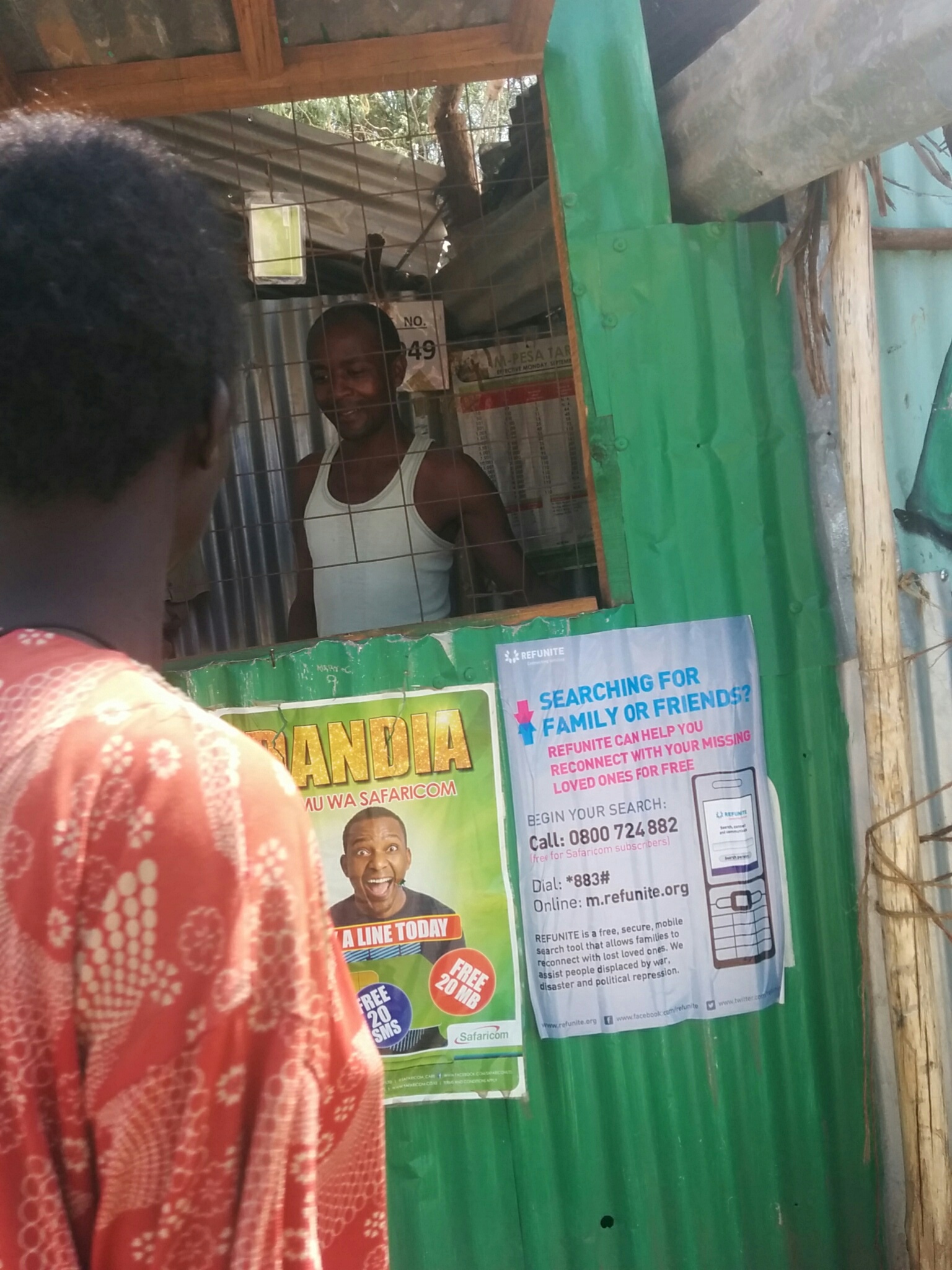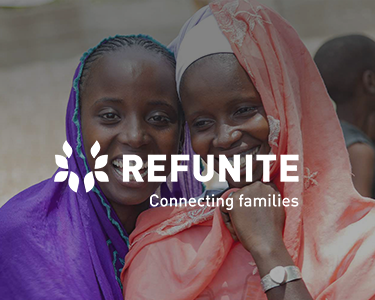
In this blog post, our Research and Prototyping Associate Angelina Ndung’u, reflects on responses from interviews she conducted with refugees who are REFUNITE agents and conduct registrations in Kakuma Refugee Camp.
Why did you decide to work as an agent for REFUNITE?
 “I feel like I have impacted people’s lives by helping them register on the platform. I have discovered that many people have no idea where their relatives are. After telling them about REFUNITE’s family-tracing service, I feel like I have given them hope because now they know that there is an easy way to search and possibly find missing loved ones. Their faces light up and it’s as if they have a new lease of life.”
“I feel like I have impacted people’s lives by helping them register on the platform. I have discovered that many people have no idea where their relatives are. After telling them about REFUNITE’s family-tracing service, I feel like I have given them hope because now they know that there is an easy way to search and possibly find missing loved ones. Their faces light up and it’s as if they have a new lease of life.”
From this response, I learnt that the agents want to be seen as a beacon of hope. They want to encourage fellow refugees not to give up on searching for loved ones and want to feel affiliated to a service that is helping their community.
What is your experience when signing up refugees on the platform?
“I usually approach different people and explain to them how REFUNITE can help them find missing family members. I then ask if they are interested in signing up. If they agree, I log on to my account and show them how to use the platform. I follow the steps you (Angelina) showed me and where I get stuck, I refer to the notes I have. But sometimes I forget to exchange SMS*. ”
From this response, I learnt that continuous training is key for agents to know how to use the platform well, which will in turn increase the number of registrations on the platform and enable receipt of feedback for creating a support channel for them.
I also learnt to take note of the language that agents use as it is a reflection of how members of their community communicate. From the response above, the agent talks about exchanging SMS which according to him means exchanging text messages.
What challenges do you face and how do you handle them?
“The number of agents are few and because of this, we are not able to reach as many people as we’d like. I often talk to other shopkeepers and we exchange ideas on how to solve this issue. They said there are other community members interested in becoming agents too.”
From this response, I learnt that the agents like team work when it comes to problem solving and are interested in getting people to sign up both as agents and beneficiaries. They also took the initiative to start training their colleagues to assist them get more people registered on REFUNITE.
However, a functional tracking system is key to determine authenticity of sign ups from secondary agents.
“People in the community are cautious because of the situations they have gone through back at home such as persecution and victimization. If I do not have anything to identify myself as a REFUNITE agent it can be difficult to convince them to sign up and register their details.”
This response forms the basis of incorporating marketing collateral when conducting registrations. Our agents need a way of identifying themselves to potential users. The material can also help spread the word about REFUNITE and even act as a momento for users.
External challenges include:
- Network fluctuations
“Today my challenge was internet connection and the system kept refreshing itself and clients were not very patient.”
Given the remoteness of where the camps are situated, network fluctuations are common which makes it difficult to use the REFUNITE platform. To deal with this agents sometimes have to record the client details and actively seek them out when network issues are resolved.
- Illiteracy
Many refugees are not able to read and write, more so when using a phone. Many of the elderly and illiterate people only use their phone to make calls and say other phone capabilities seem too complicated for them.
An innovative way of dealing with this is teaching the younger generation how to use the REFUNITE platform. Although they are minors, they are able to assist their parents and the older community members to register.
On which days do you conduct registrations?
“Everyday is registration day.”
Contrary to my assumptions that days of worship, public holidays and weekends would have little or no registrations, I learnt that as long as business is open, registrations go on.
How has your work as an agent affected your business?
“The most interesting thing is that clients are happier because I teach them how to use this new technology. They also promise to bring more people to my shop.”
From this response, I learnt that being associated with REFUNITE brings other benefits to the agent beyond the direct incentive.
Are there any misconceptions/reservations about the REFUNITE platform?
“Some clients usually ask whether I am registering them for resettlement or re-connection because of the many questions on the platform.”
“I had one client who asked me if the information they give on the platform is shared with other organizations. I told them that REFUNITE is an independant organisation and doesn’t share any information with other agencies so their information is safe and secure.”
From these responses, it was evident that there is need to do more research into issues that may be unclear about REFUNITE and train our agents on how to handle such.
Conclusion
The Agents’ model has shown amazing potential for user acquisition and as a research tool for REFUNITE despite the challenges that are however being addressed.
A participatory approach is key to improving, scaling and stabilising this model as it evolves. Keeping the user at the center while balancing everything else to achieve the overall goal of REFUNITE: reconnecting families with missing loved ones.
*For security reasons, all names have been excluded to protect the interviewees.
Connect with Angelina on ann@refunite.org


